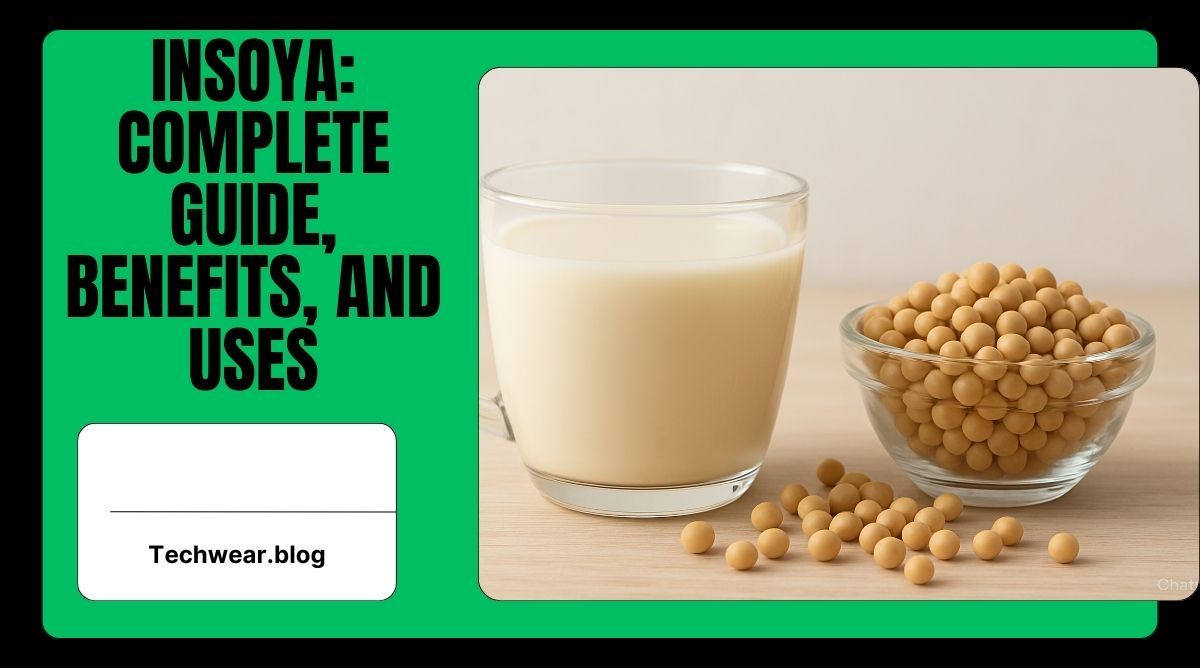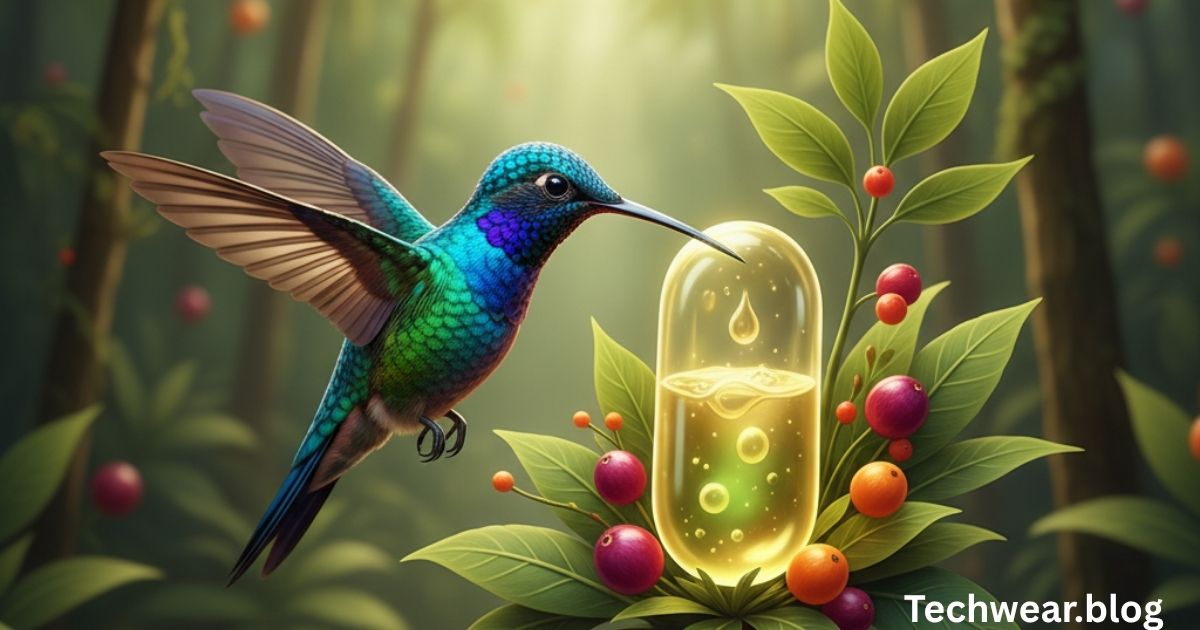In the world of health, nutrition, and sustainable living, plant-based products are becoming more popular than ever before. Among these, Insoya has emerged as a name that captures attention for its connection to soy-based products, health benefits, and applications across multiple industries. Whether you look at it from the perspective of food, wellness, or sustainability, Insoya reflects the growing importance of soy in human lives.
This article explores the concept of Insoya, its background, its uses, advantages, and challenges while highlighting why soy-related innovations are becoming central in today’s global markets.
What is Insoya?
Insoya can be broadly understood as a brand or concept that revolves around soy and its derivatives. The term itself is inspired by soybeans, which are one of the most important sources of protein for humans and animals alike. Soybeans are processed to create numerous food products such as tofu, soy milk, soy protein powder, and soy oil.
As soy-based diets and products continue to grow in popularity, companies and initiatives like Insoya aim to deliver high-quality, plant-based solutions to meet the needs of modern consumers. For a deeper understanding of the plant itself, one can refer to soybean, which explains its history, cultivation, and global significance.
Historical Background of Soy
Soybeans have been cultivated for thousands of years, primarily in East Asia. Ancient civilizations in China, Korea, and Japan used soy not just as a food source but also for medicinal purposes. Over time, the soybean traveled across the globe, reaching the United States, South America, and Europe, where it became a key agricultural commodity.
Today, soy is grown extensively in countries like Brazil, the United States, and Argentina, making it one of the world’s most widely traded crops. Insoya fits into this larger narrative of soy’s journey from an ancient staple to a modern global resource.
Insoya and Plant-Based Nutrition
One of the most significant contributions of Insoya lies in the realm of plant-based nutrition. As more people turn away from animal-based diets due to health, ethical, or environmental reasons, soy has become a primary alternative.
Soy is valued for its:
- High Protein Content: Soy protein is considered a complete protein, containing all nine essential amino acids.
- Low Cholesterol Levels: Unlike animal proteins, soy does not contribute to cholesterol buildup.
- Versatility: It can be transformed into milk, tofu, flour, or even meat alternatives.
Insoya embraces these benefits to provide food options that are healthy, accessible, and eco-friendly.
Applications of Insoya
The uses of Insoya extend across different industries:
1. Food Industry
Soy-based foods like tofu, soy milk, and soy protein supplements are among the most popular plant-based alternatives. Insoya focuses on delivering such options for health-conscious consumers.
2. Health and Wellness
Soy is known for its role in reducing the risk of heart disease, managing cholesterol, and supporting bone health. Products under Insoya may include supplements or fortified food items.
3. Cosmetics and Personal Care
Soy extracts are increasingly used in lotions, shampoos, and skincare products because of their antioxidant properties. Insoya could be part of this growing trend.
4. Animal Feed
Soy-based protein remains a crucial component of livestock and aquaculture feed. Through sustainable farming practices, Insoya can play a role in balancing food systems.
Advantages of Insoya
Adopting Insoya products offers multiple benefits:
- Nutritional Value: Rich in proteins, vitamins, and minerals.
- Sustainability: Soy cultivation generally has a smaller carbon footprint compared to animal farming.
- Economic Opportunities: Soy-based industries open up jobs and investments in agriculture and manufacturing.
- Dietary Flexibility: Ideal for vegans, vegetarians, and those with lactose intolerance.
Challenges Facing Insoya
Despite its advantages, Insoya faces several challenges:
- Allergies: Soy is a common allergen, which can limit its universal acceptance.
- GMO Concerns: A significant portion of global soy production involves genetically modified crops, raising concerns among consumers.
- Deforestation: Large-scale soy cultivation in regions like the Amazon rainforest contributes to environmental degradation.
- Market Competition: Alternatives like pea protein, almond milk, and oat milk are rising in popularity.
For Insoya to thrive, these issues must be addressed through innovation, transparency, and responsible sourcing.
Insoya and Sustainability
Sustainability is central to the Insoya identity. With increasing awareness about climate change and environmental damage, plant-based diets are seen as a solution. Soy cultivation, when managed responsibly, offers:
- Lower Greenhouse Gas Emissions compared to livestock farming.
- Efficient Land Use, producing more protein per acre than animal farming.
- Potential for Organic Farming, which reduces chemical inputs.
Insoya’s alignment with sustainable agriculture highlights its importance in global food security.
Future of Insoya
The future of Insoya looks promising as the demand for plant-based products continues to rise worldwide. Market research suggests that the global soy protein market is expected to grow significantly in the next decade, driven by veganism, vegetarianism, and flexitarian diets.
Additionally, innovations like lab-grown meat alternatives, soy-based dairy products, and functional health foods will push Insoya further into mainstream markets.
With proper marketing, sustainability practices, and consumer education, Insoya could become a household name in plant-based living.
Conclusion
Insoya represents more than just soy products; it symbolizes a shift toward healthier living, sustainability, and innovative food solutions. From its historical roots in East Asia to its modern role in global markets, soy has always been a cornerstone of nutrition and wellness.
By focusing on plant-based diets, eco-friendly practices, and consumer health, Insoya demonstrates the vast potential soy holds in shaping the future of food and lifestyle. As the world continues to evolve, the importance of such initiatives will only grow, making Insoya a key player in the sustainable journey ahead.










